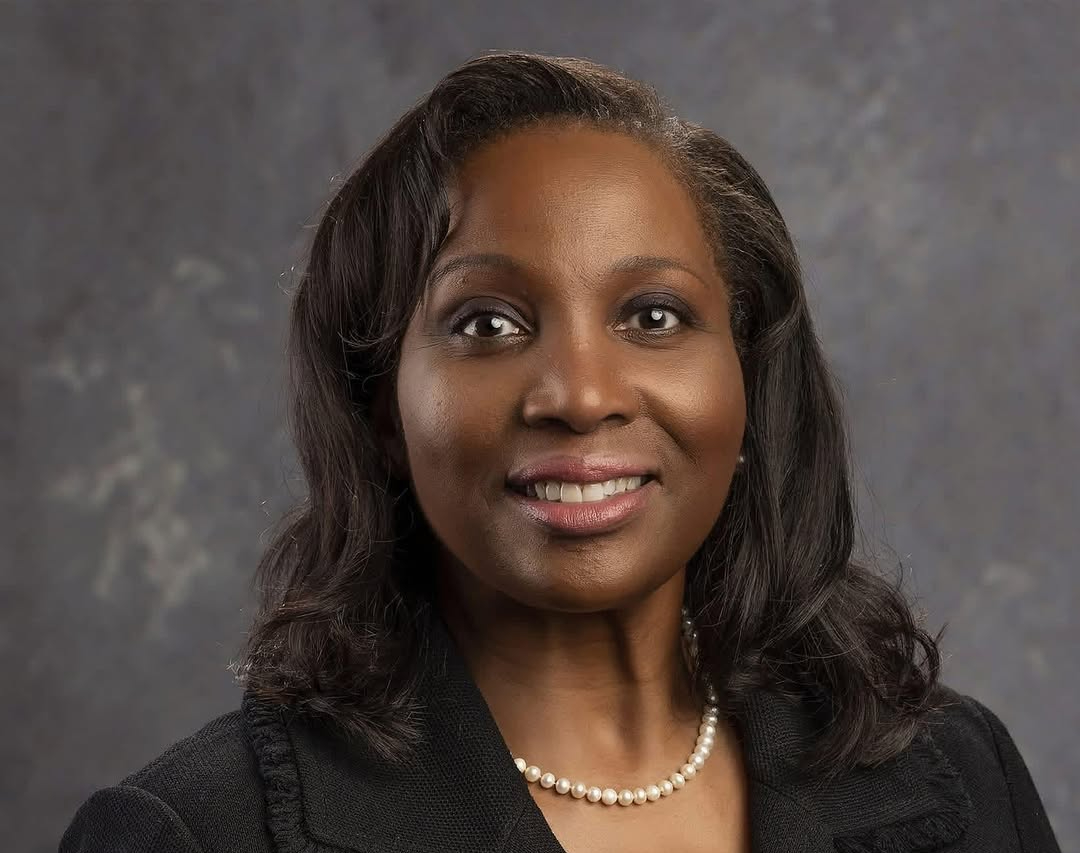Market Shock: Why Trump’s Firing of Fed Governor Lisa Cook Is a Turning Point
The Federal Reserve, often viewed as the bedrock of U.S. financial stability, has been thrust into political turmoil. In late August 2025, President Donald Trump announced the firing of Fed Governor Lisa Cook—an unprecedented move that immediately sent shockwaves through markets and raised profound questions about the independence of America’s central bank. Cook, the first Black woman appointed to the Fed’s Board of Governors, has vowed to fight the dismissal, arguing that the President lacks the legal authority to remove her. Whether the firing holds up in court or not, the episode is already reshaping investor confidence, Fed governance, and the broader debate about the role of politics in monetary policy.
Who is Lisa Cook?
Lisa D. Cook is an accomplished economist, policy advisor, and academic. Born in Georgia and educated at Spelman College, she later became a Marshall Scholar at Oxford and earned her Ph.D. in economics from the University of California, Berkeley. Before her Fed appointment, Cook served as a professor at Michigan State University and held roles in the Obama administration, including as a senior economist on the Council of Economic Advisers.
When she joined the Fed’s Board of Governors in 2022, Cook broke barriers as the first Black woman in the institution’s history. Her research portfolio spans innovation, economic growth, and financial crises. Colleagues have described her as a “bridge-builder,” combining academic rigor with practical policymaking experience. Her appointment to a full 14-year term in 2023 underscored her significance in shaping the Fed’s long-term direction.

Lisa Cook
What is a Fed Governor?
The Federal Reserve Board of Governors, based in Washington, D.C., is the governing body of the U.S. central bank. Each governor is nominated by the President, confirmed by the Senate, and serves a 14-year term. Governors help regulate banks, oversee the Federal Reserve system, and—through their role on the Federal Open Market Committee (FOMC)—influence interest rates and broader monetary policy.
A crucial element of the role is independence. Governors cannot be removed without “cause,” a safeguard written into the Federal Reserve Act to protect monetary policy from political interference. Legal experts note that while “cause” can encompass misconduct or incapacity, it has never been tested in the case of a sitting governor. That legal ambiguity is now at the center of Cook’s case.
Related: Who Leads the Fed in 2025? Jerome Powell’s Role and the Power of the Federal Reserve
Why Did She Get Fired?
On August 25, 2025, Trump announced he was removing Lisa Cook, citing allegations that she had improperly claimed two homes as “primary residences” when securing mortgage loans in 2021. By law, borrowers can generally claim only one primary residence at a time, and doing otherwise can allow access to more favorable loan terms. Cook has denied wrongdoing, arguing that the issue predates her appointment and that it does not constitute the type of “cause” required for removal under the Federal Reserve Act.
The legal stakes are historic. No president has ever attempted to fire a Fed governor, making this a test case not only for Cook’s career but also for the independence of the Federal Reserve itself. The Associated Press reported that legal scholars are split: some argue the allegations may not meet the threshold for removal, while others warn that allowing political leaders to dismiss governors over personal matters sets a dangerous precedent.

Lisa Cook
Market Reaction: Investors Rattle at the Precedent
Markets wasted no time in delivering a verdict. Reuters reported that the U.S. dollar weakened immediately after the announcement, Treasury yields fell, and gold prices rose—all signals of investors hedging against political interference in the Fed. Stocks dipped amid fears that central bank decisions could become politicized, with particular concern around the FOMC’s near-term stance on interest rates.
For investors, the removal raised three immediate risks:
-
Policy credibility – If the Fed is seen as subject to presidential whims, markets may price in less stability in long-term interest rates.
-
Legal uncertainty – Ongoing court challenges could delay or complicate FOMC decisions if Cook remains in limbo.
-
Global trust – The dollar’s role as the world’s reserve currency depends partly on confidence in U.S. institutions. Undermining the Fed could weaken that trust.
Related: Did Ken Griffin’s Fed Warning Just Shake Wall Street?
What Does This Mean for Fed Independence?
The firing of Lisa Cook has re-opened a long-running debate about the balance between democratic accountability and central bank autonomy. Critics argue that the Fed’s independence is essential to keep politics out of interest-rate decisions. Supporters of Trump’s move counter that the Fed has too much unchecked power and needs more accountability.
But the context matters: Cook was a sitting governor with a Senate-confirmed term extending to 2037. If courts uphold her dismissal, presidents could potentially reshape the Board far more quickly than designed, effectively politicizing monetary policy in ways the framers of the Fed never intended.
Related: What is The Fed’s Next Move
The Bigger Picture: What Comes Next?
Legal challenges are already underway. Cook has signaled she will not resign, meaning the final decision could come from federal courts. If her removal is overturned, the White House faces a major political setback. If it stands, the door opens to greater executive influence over the Fed—and heightened volatility in financial markets.
For businesses and investors, the lesson is clear: the Fed, once viewed as one of the most stable U.S. institutions, is now subject to political headline risk. That reality makes scenario planning around interest rates, inflation, and market volatility more complex than at any time since the financial crisis.
Conclusion
Lisa Cook’s dismissal is not just about one Fed governor—it’s about the credibility of America’s monetary system. For the first time in U.S. history, the President has attempted to remove a Senate-confirmed governor, raising fundamental questions about independence, legality, and market trust.
Whether Cook returns to her seat or not, the precedent is set: politics and central banking are colliding in ways that will shape U.S. markets for years to come. For investors, policymakers, and businesses alike, this is more than a personnel change—it’s a turning point in the story of the Federal Reserve.
Related: Jerome Powell: From Law to the Fed’s Helm
Related: Trump Administration's Buyout Offer to Federal Workers
Sources
-
CNN – “Trump says he has fired Fed Governor Lisa Cook. She says she will ‘continue to carry out’ duties.”
-
Reuters – Market reaction to the firing and implications for Fed credibility.
-
Associated Press (AP) – Legal stakes and independence concerns.
-
Washington Post – Details on mortgage allegations and referral.












